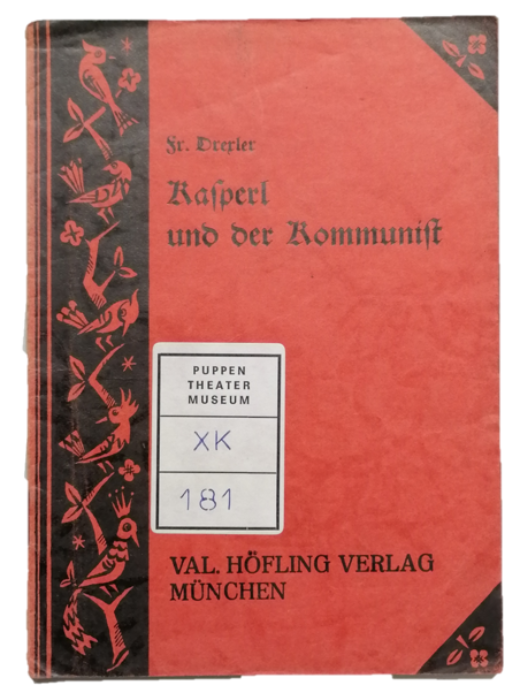
Printed
10 pages
Author(s)
Kasperl und der Kommunist
This small piece, which appeared in a series of publications for young people with a Catholic orientation, formulates in a short dialogue anti-communist positions that allow it to be dated to the immediate post-war period, during the German revolution of 1918-1919 and before the insurrectionary episode known in Bavaria as the Republic of Councils (April to May 1919). The play was written by Franz Drexler, in whom one can probably recognise the sculptor of the same name celebrated in Munich before the war and he resorts, despite hiss rather conservative views, to the propaganda tools exploited at the same time, in a competing manner, by the revolutionary socialist movements in a series of publications for the puppet theatre: in both, Kasperl is characterised by his popular common sense and naive frankness, which destabilise his opponents.
Fanatical blindness
Kasperl meets a communist with a red flag. The latter tries to win him over to his cause, but Kasperl, who at first thinks the communist is a bullfighter with a muleta, answers him on every point with a good-natured naivety: he thus manages to unmask the egoism of the other man, who, having run out of arguments, leaves, threatening Kasperl that he will be the first to be lynched at the next attempted putsch.
Publications and translations
Fr. Drexler: Kasperl und der Kommunist, 2. Auflage, Munich, Val. Höfling, s.d.